The Weight of Love: Lessons from Long Nose Bear
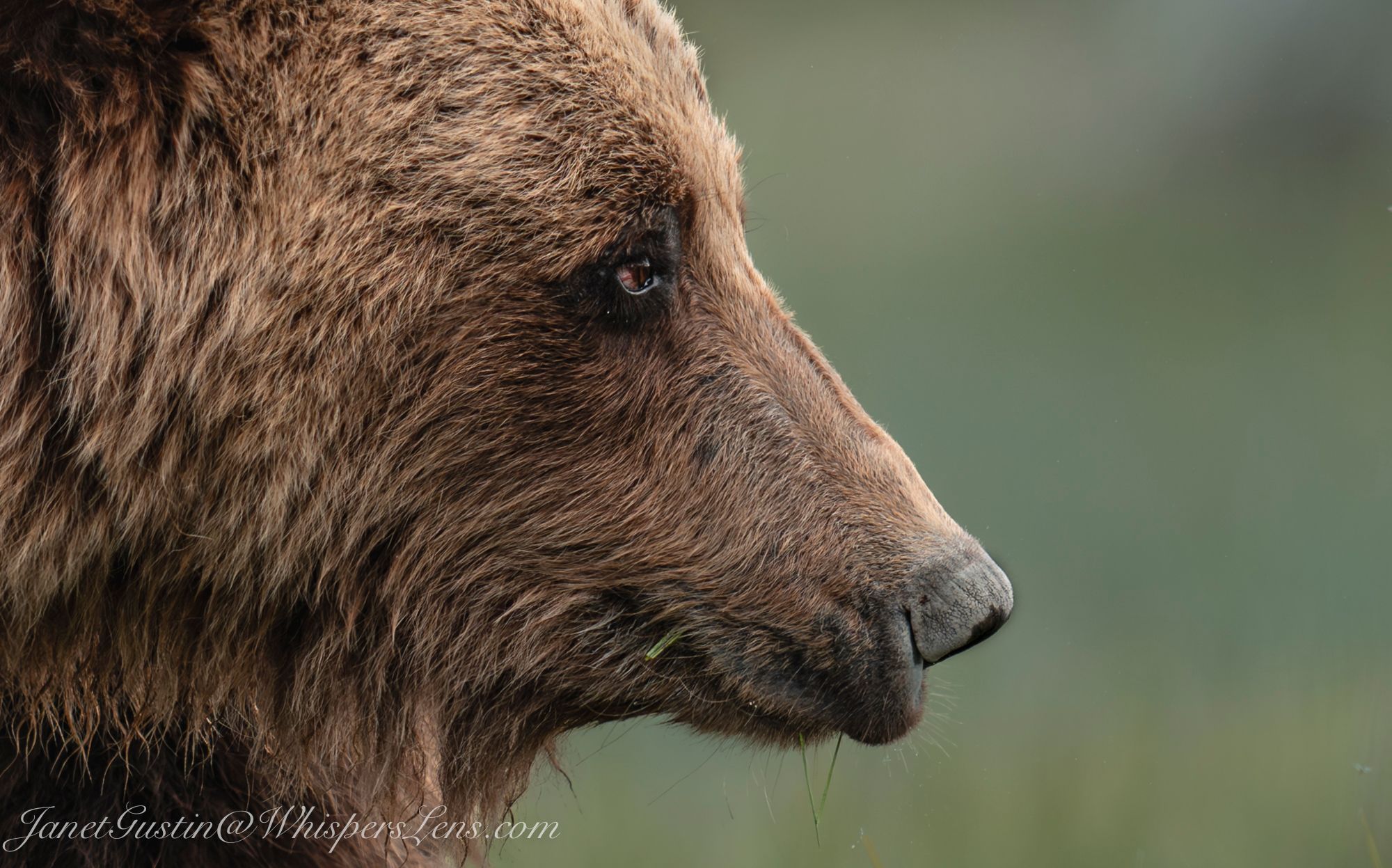
The invitation came wrapped in exhaustion and possibility—another chance to witness God's whispers in the wild. Lake Clark, Alaska called, promising coastal brown bears and the raw beauty that only comes from places where humans are visitors, not residents. I had no idea I was about to witness one of the most profound stories of redemption I'd ever seen, told not in words but in the careful movements of a mother who had learned to love with the weight of loss. It brought to mind that ancient promise:
“He[God] heals the brokenhearted and binds up their wounds." (Psalm 147:3)
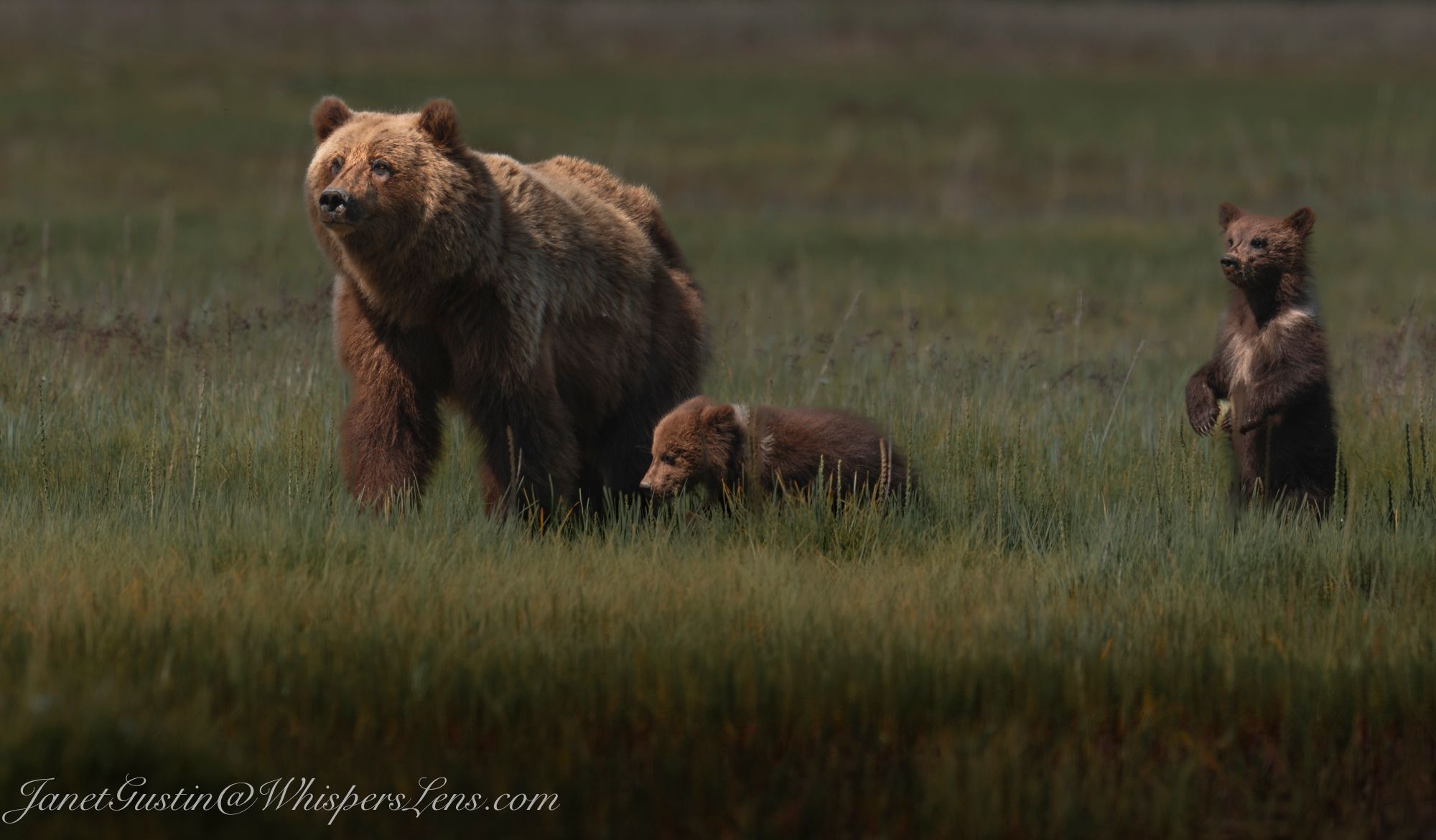
They called her Long Nose Bear, and when I first spotted her in the meadow with her two young cubs, I saw only another bear family going about their daily routine. But as I watched her interactions with her little ones—one caramel brown, cautious and careful, the other deep chocolate brown, adventurous and bold—I began to notice something different. This wasn't just maternal instinct at work. This was motherhood refined by fire.
Our guide Adam shared her story in hushed tones, the way you speak of sacred things. Long Nose Bear had been a mother before. Young, inexperienced, she had treated motherhood like an extension of her own needs. When her favorite clams called from the mudflats, she would abandon her cubs to indulge herself, leaving them vulnerable while she satisfied her cravings. The brutal mathematics of the wilderness played out as they always do—only 50% of cubs survive their first year in this part of Alaska, and hers became part of that heartbreaking statistic.
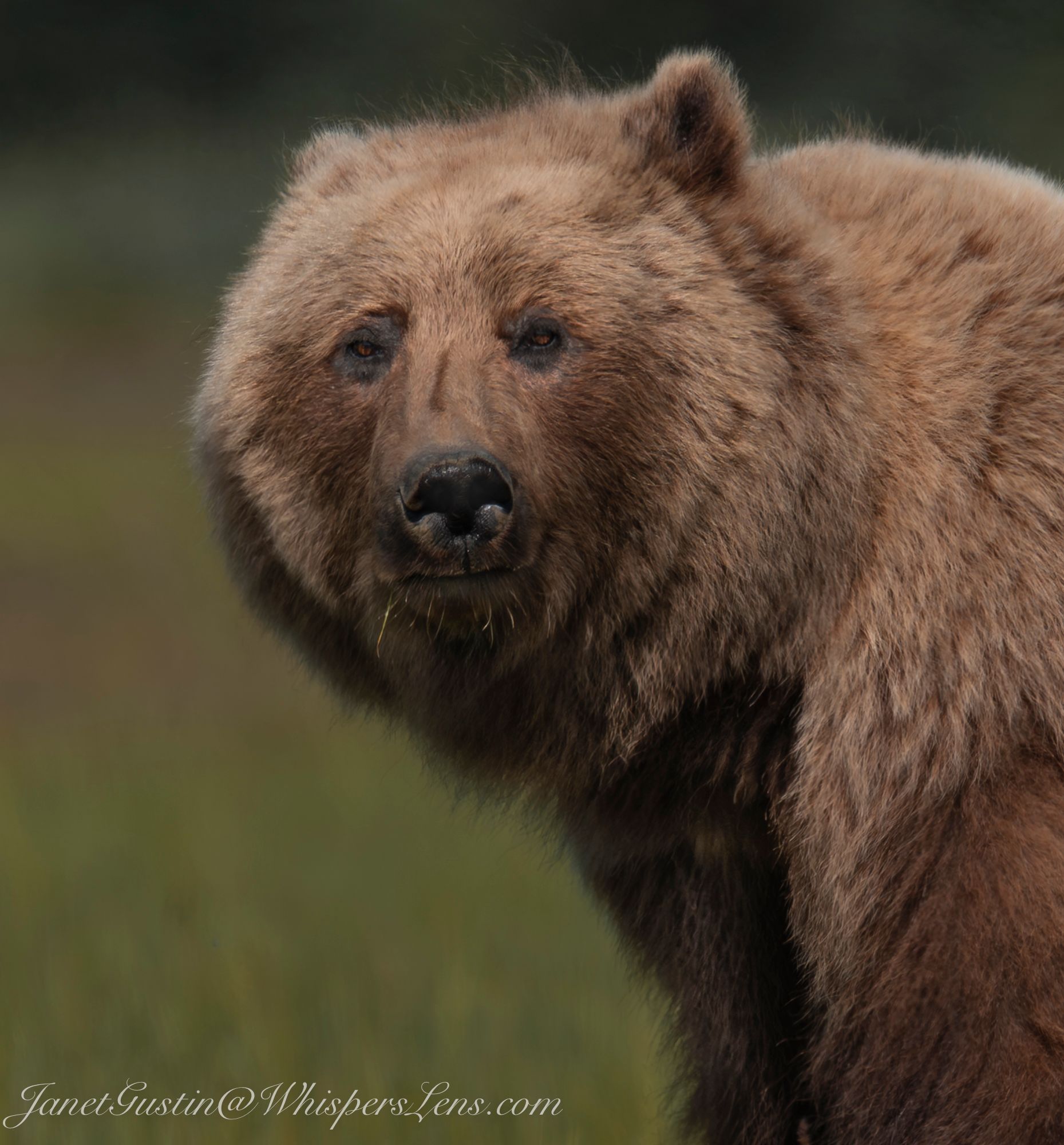
To the casual observer, she had seemed unaffected by the loss. Bears don't mourn the way humans do, they don't wear their grief on their sleeves. But God was writing a different story in her heart, one that would only be revealed in how she loved the next time around. I was reminded of the comfort I've always found in knowing:
"The Lord is close to the brokenhearted and saves those who are crushed in spirit." (Psalm 34:18)
Now, watching her with these two precious souls, I witnessed love transformed by loss. Where once she had been careless, now she was vigilant. Her nose constantly tested the air, reading the wind for danger that her cubs couldn't yet detect. Where once she had been selfish, now she was selfless in ways that took my breath away.
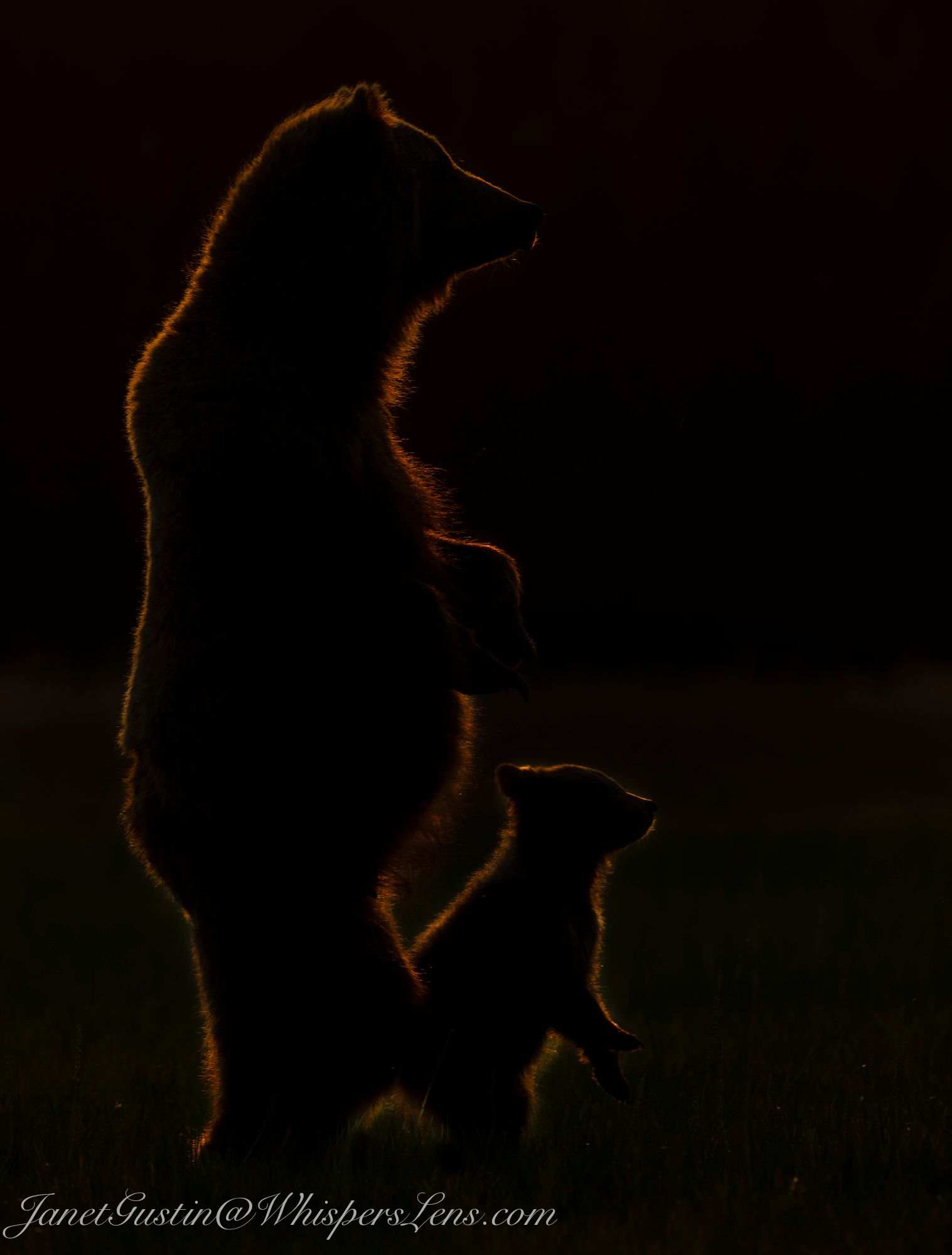
The caramel cub—I imagined her as a little girl—seemed to carry her mother's learned caution in her small frame. She stayed close, always aware of where safety waited. The chocolate cub—surely a boy with that sense of adventure—wandered further, explored more boldly, and received more firm correction from his mother. Not harsh punishment, but the kind of loving discipline that says: "The world is dangerous, and I need you to understand that because I cannot bear to lose you again." It was like watching those sometimes difficult words from Hebrews come alive:
"No discipline seems pleasant at the time, but painful. Later on, however, it produces a harvest of righteousness and peace for those who have been trained by it." (Hebrews 12:11)
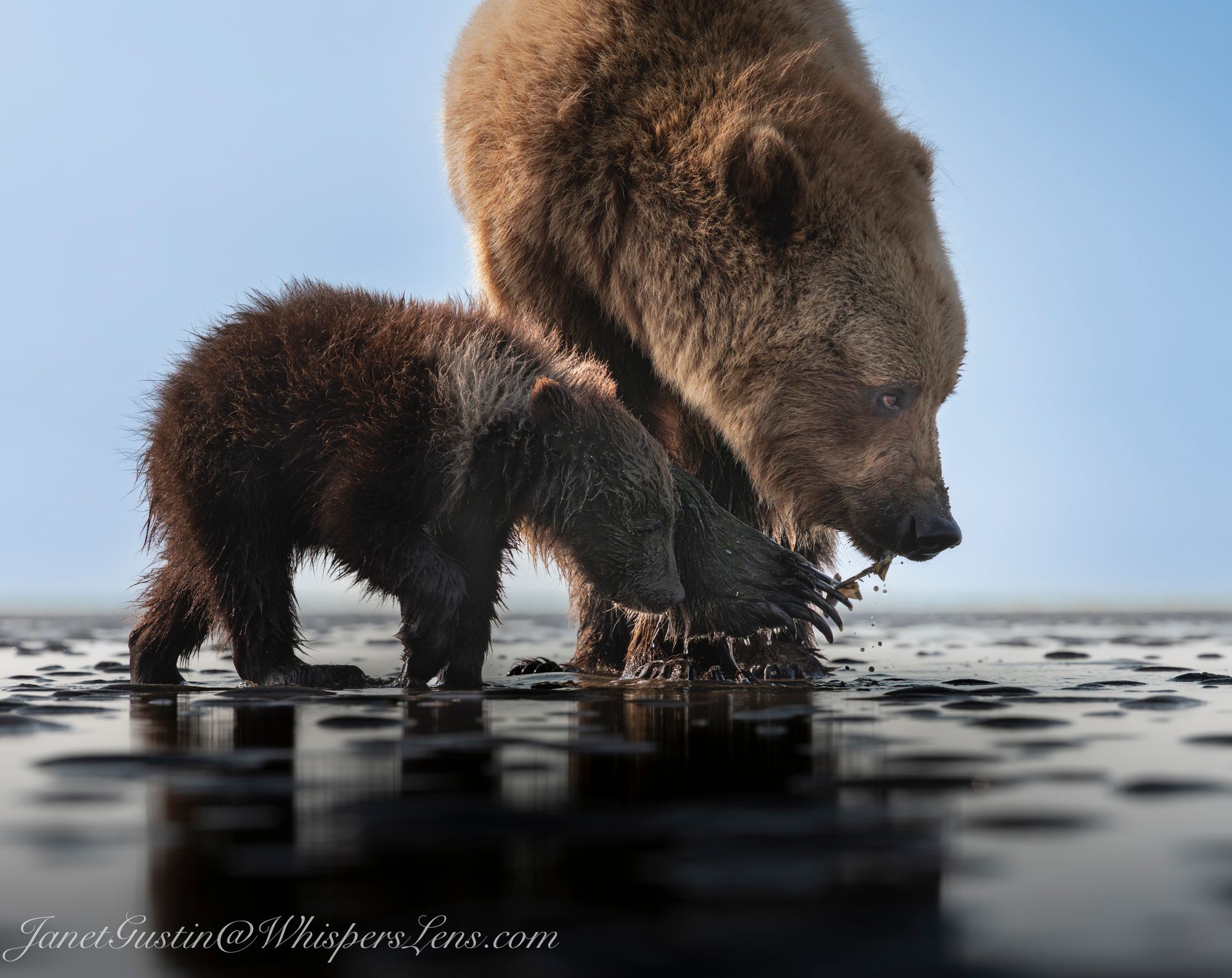
But it was at the mudflats where I witnessed the most beautiful picture of redemption I've ever seen. Long Nose Bear would dig deep into the sand with the expertise of someone who had spent years perfecting the art of clam hunting. But instead of devouring her prize as she once had, she would eat only half, then deliberately drop the remainder back into the sand where it was shallow enough for her cubs to dig it out themselves.
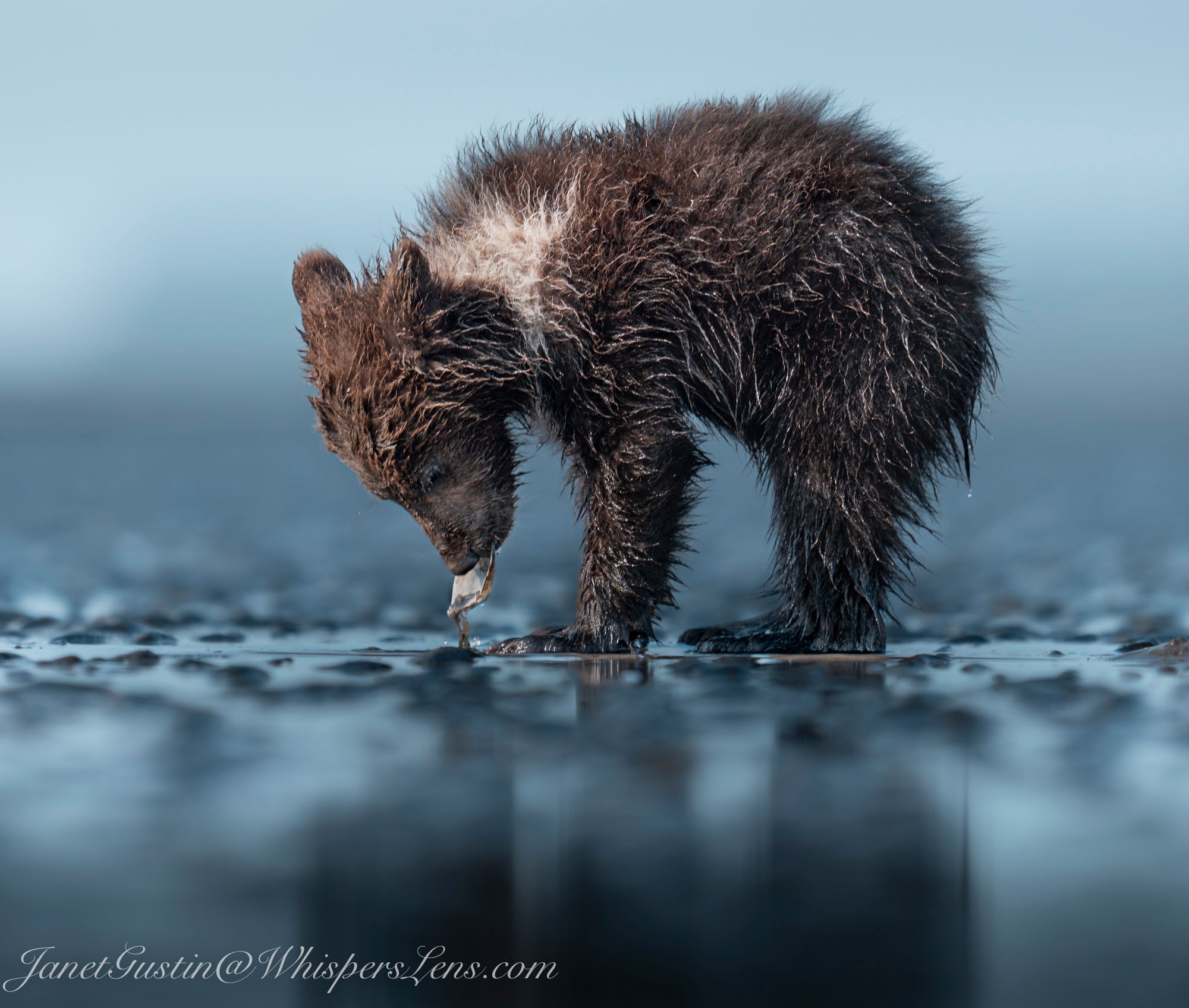
Teaching, not spoiling. Providing, not enabling. She was giving them the tools for survival, not just the temporary satisfaction of a full belly. In that simple act, I saw the heart of our Heavenly Father—the One who could give us everything we need instantly, but chooses instead to walk with us through the process of learning, growing, becoming who He's called us to be.
I couldn't watch Long Nose Bear's careful clam-sharing without examining my own patterns of giving. Do I hand over solutions too easily, robbing others of the growth that comes from digging deep themselves? Or do I withhold help entirely, forgetting that teaching requires both wisdom and provision?
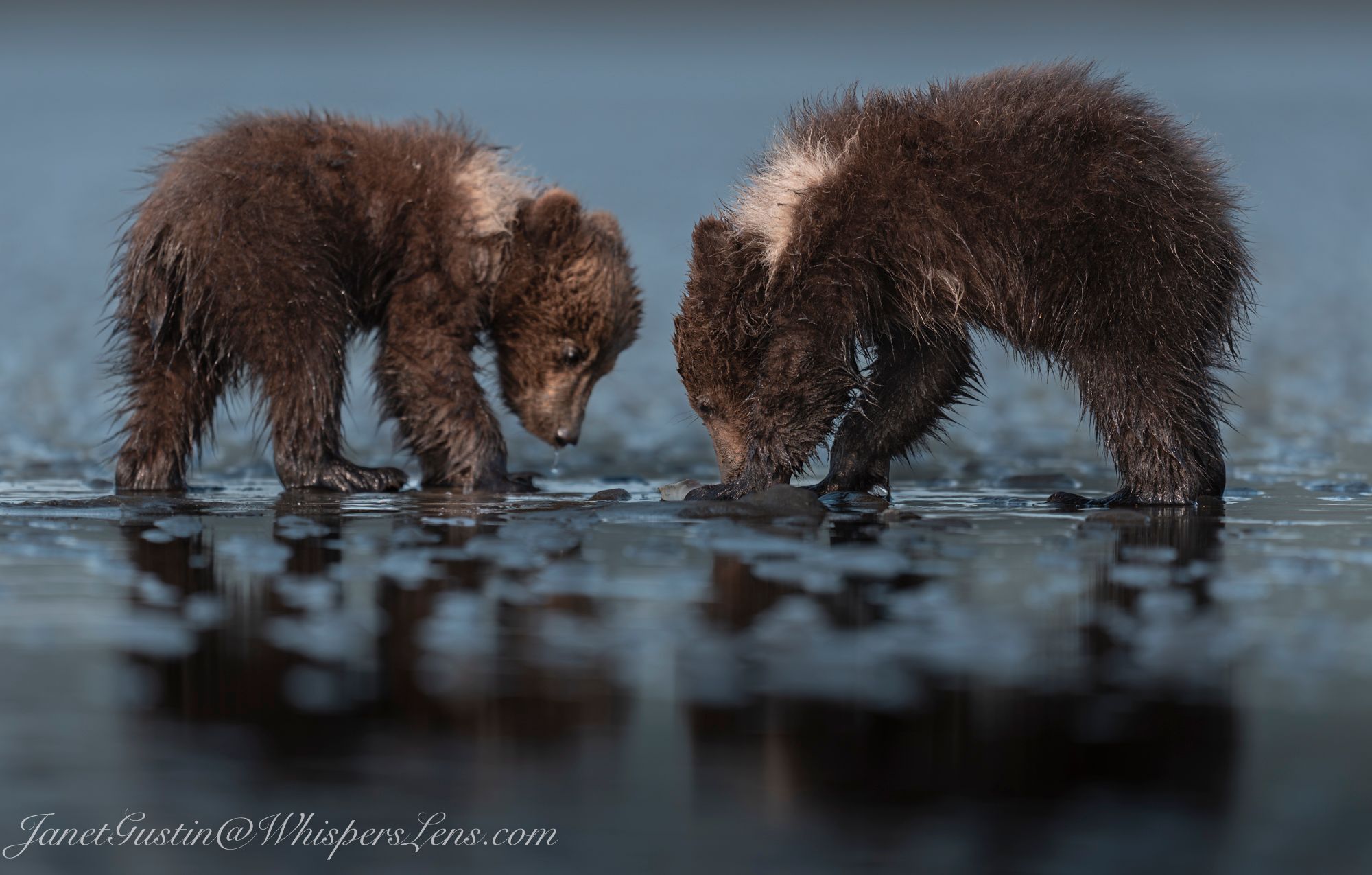
Her method challenged everything I thought I knew about love. She could have easily dug enough clams for all three of them—her skills were certainly capable. But she chose the harder path: eating half, dropping half, then watching patiently as her cubs learned to work for their reward.
When did I last choose the harder path of teaching over the easier path of providing? When did I last trust someone enough to let them struggle while I stood ready to help, rather than rushing in to solve everything for them? The prayer that Jesus taught us suddenly felt more complex:
"Give us today our daily bread." (Matthew 6:11)
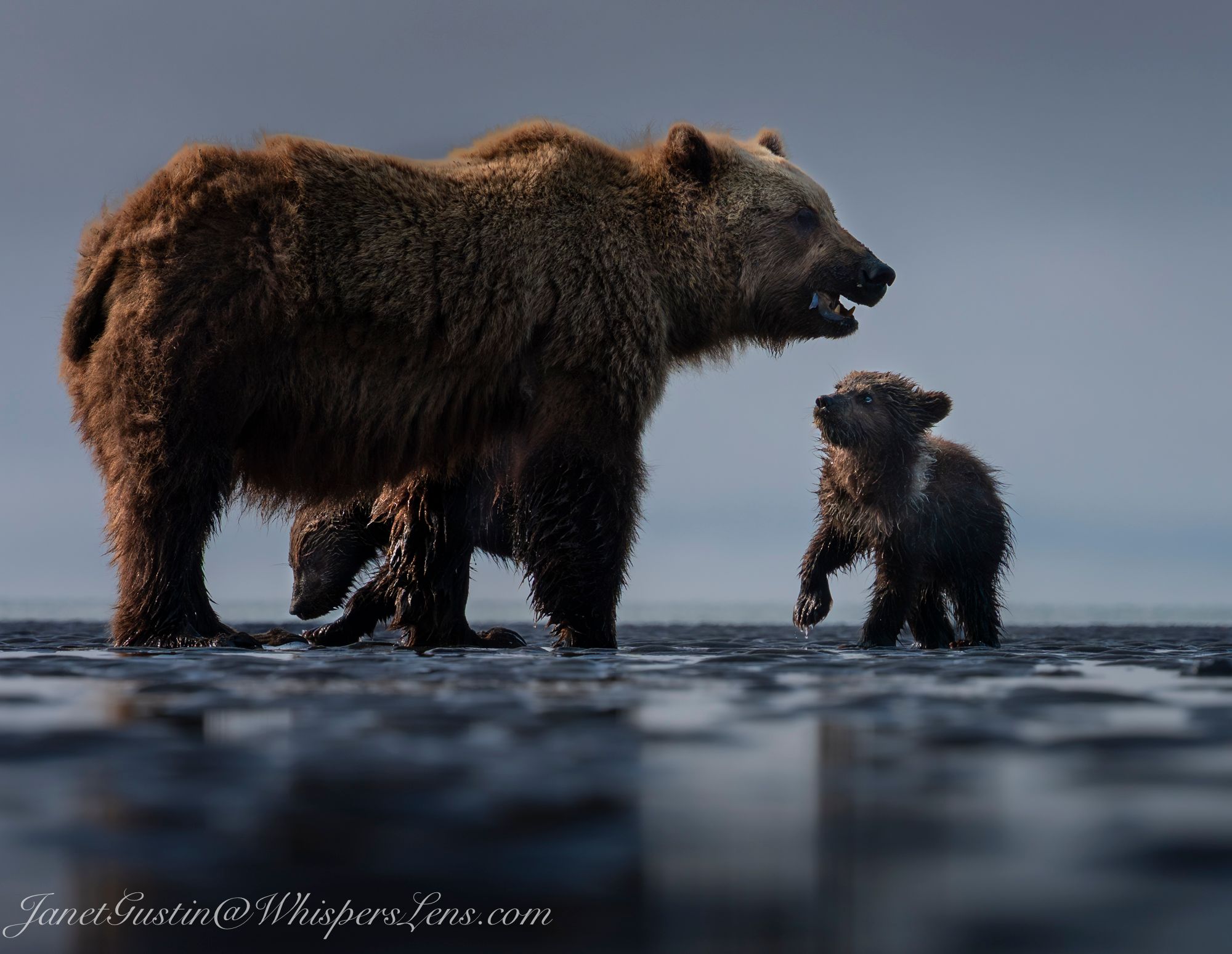
And what about my own learning? Am I still expecting God to drop my "clams" fully prepared, or am I willing to dig deeper for the lessons He's trying to teach me? The cubs didn't pout when their mother ate half her clam—they eagerly dug for their portion. Do I receive God's partial provisions with that same eager expectation, trusting that He's not withholding good from me but teaching me to participate in my own growth?
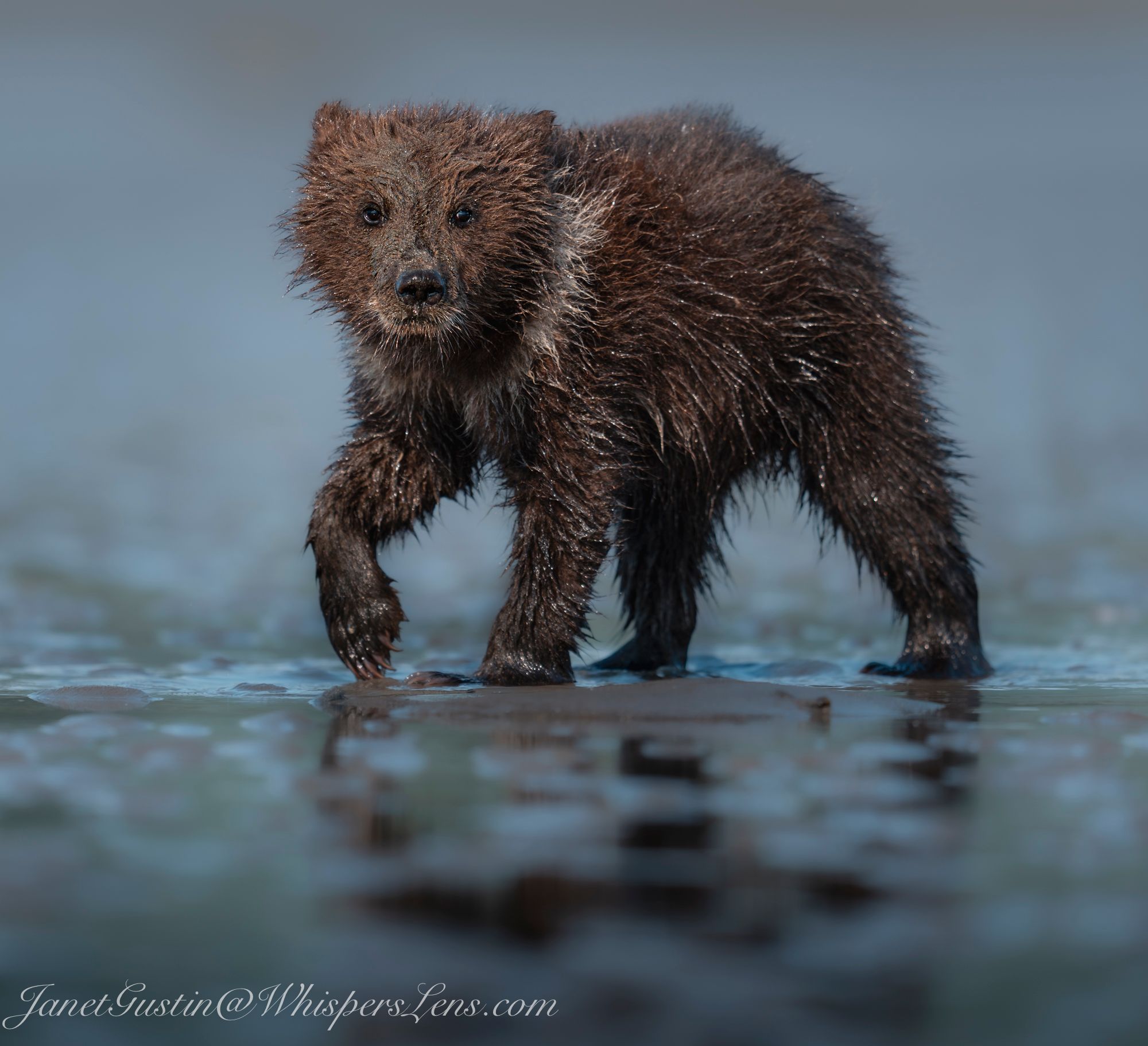
Her vigilance extended to the most creative strategies, and as I watched, I found myself squirming with recognition. She would bring her cubs closer to where we photographers sat, using our presence as a safeguard. She had learned that other bears were less likely to approach when humans were near, and she had no pride about accepting help in keeping her babies safe and allow a short nap.
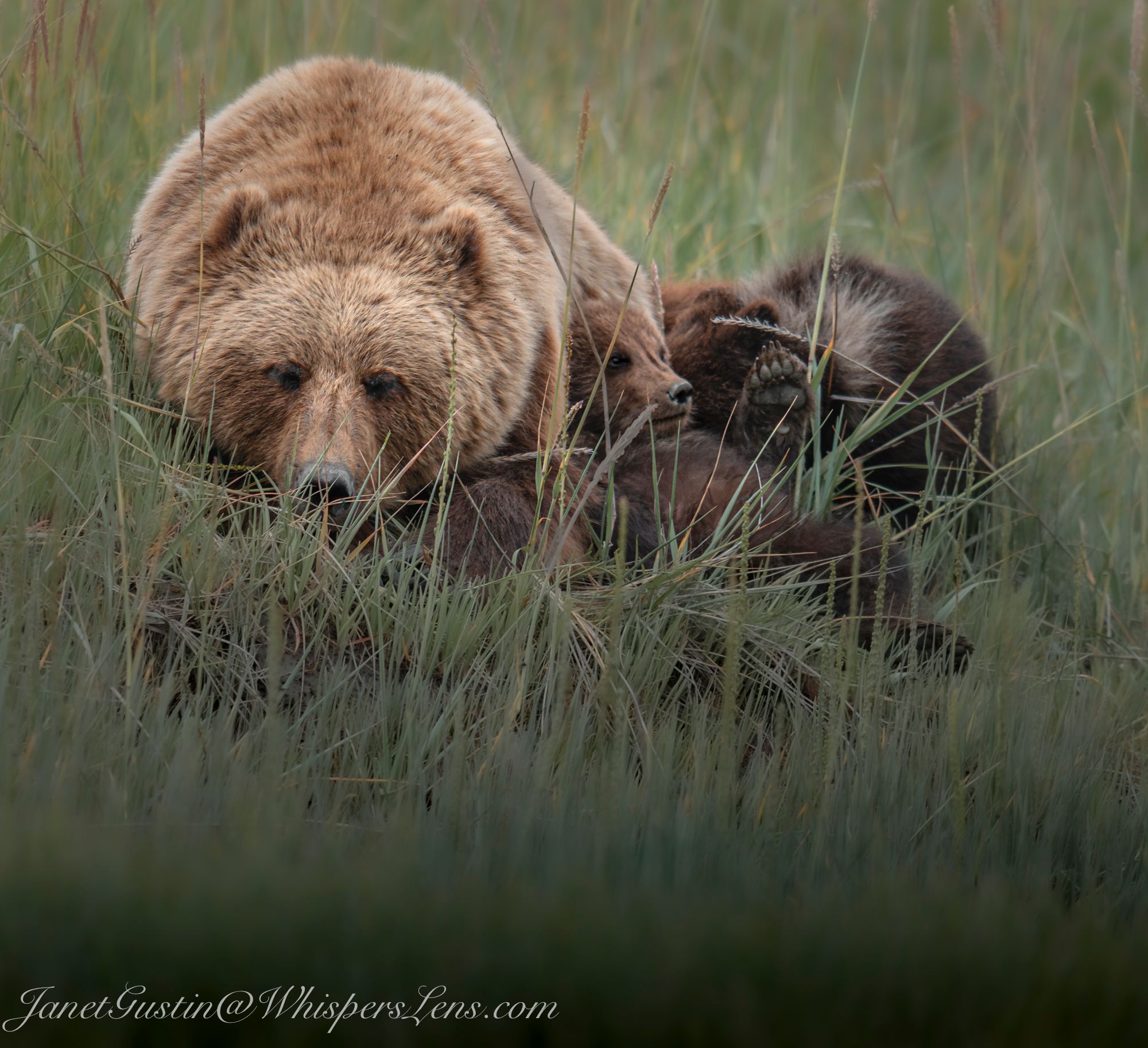
How many times have I let pride keep me from accepting the "safeguards" God places in my life? How often have I struggled alone rather than positioning myself near the people and circumstances that could offer protection and respite?
But here's the harder question: When has someone else tried to use my presence as their safeguard—a struggling friend, a hurting family member, a colleague facing challenges—and I've been too busy or too oblivious to recognize that my simply being there could provide them with the safety they desperately needed?
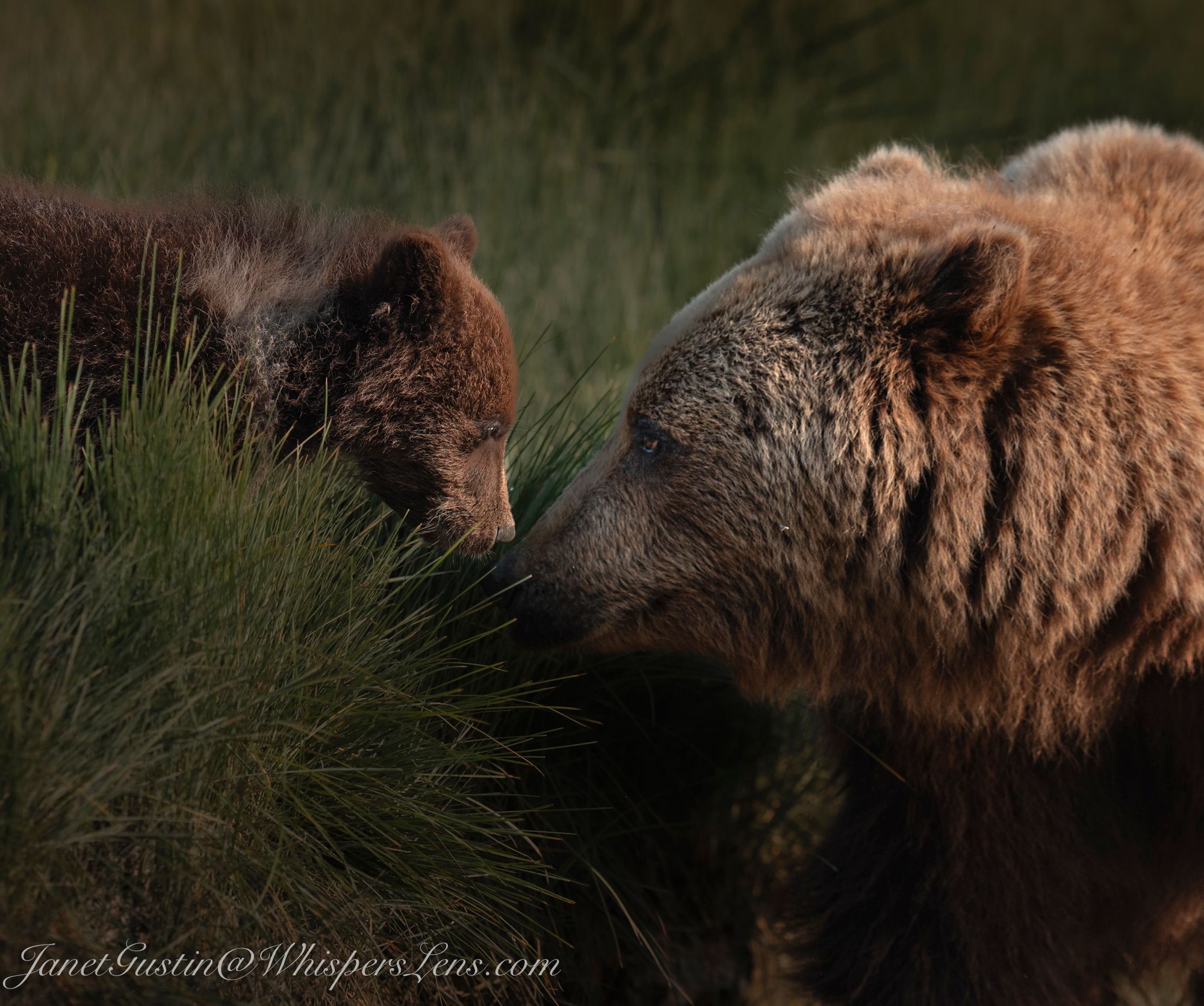
In those moments, I wondered how often God places people and circumstances in our lives as protection, even when we don't recognize His hand at work. But I also wondered how often He places US as the protection others need, and we miss the call entirely.
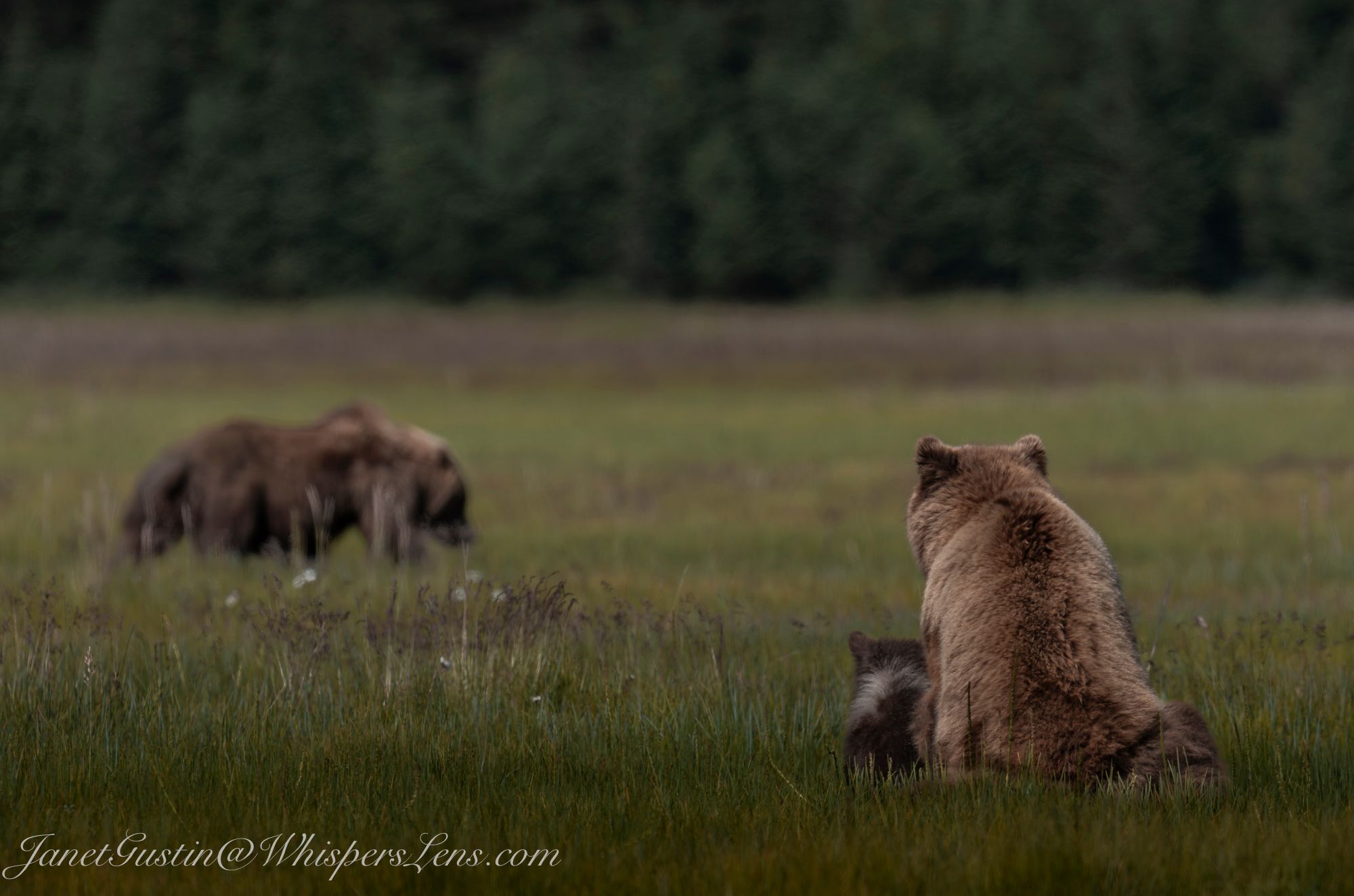
When real danger approached—a massive male bear testing boundaries—the transformation was swift and fierce. She would send her cubs scrambling up the nearest tree, then turn to face the threat with a courage born not of fearlessness, but of love that had learned the cost of carelessness. Those aggressive males learned quickly that they didn't want to face off with a mother who had already lost everything once. She embodied the strength I've always admired in those words from Proverbs:
"She is clothed with strength and dignity; she can laugh at the days to come." (Proverbs 31:25)
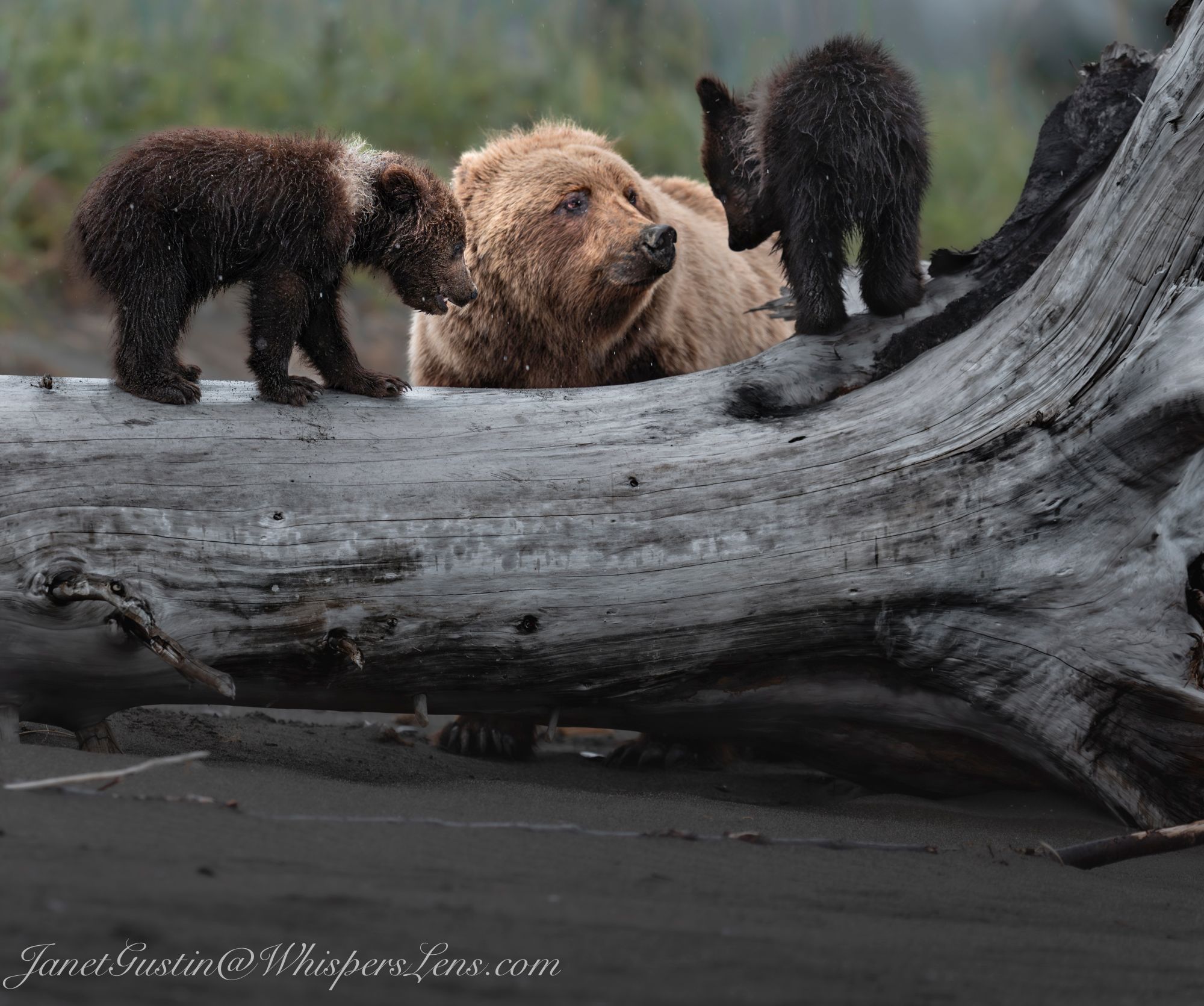
My favorite moments came when she took her cubs to the beach for what could only be described as playtime. Like any good mother, she seemed to understand that growing bodies needed more than just food and safety—they needed play and joy. She would watch, sometimes even seeming to play herself, as they ran from log to log, climbing on nature's jungle gyms. Or perhaps, like mothers everywhere, she was simply trying to wear them out so they'd sleep better.
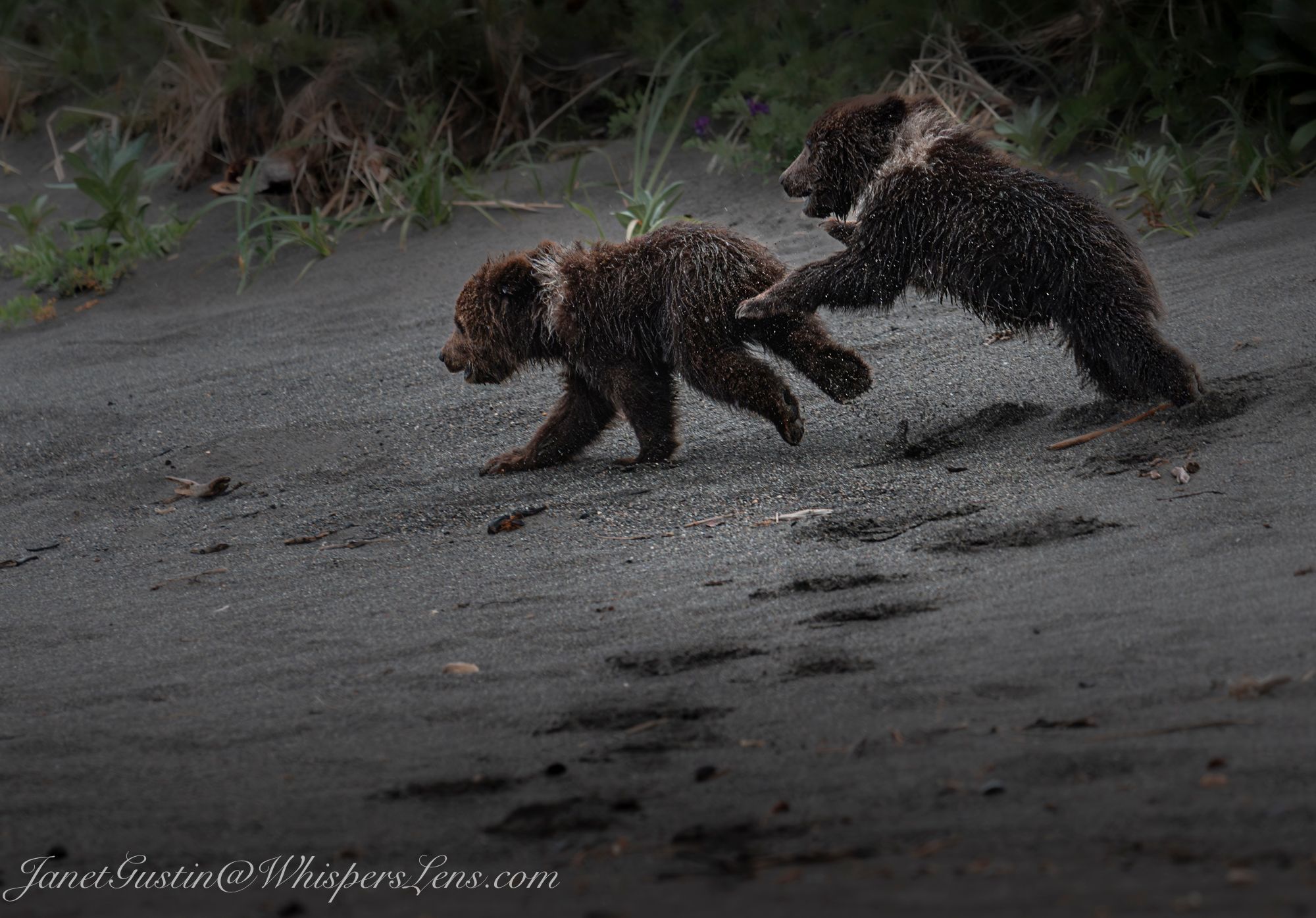
After these beach adventures, they would emerge wet and sandy, looking adorably scruffy. In their playful exhaustion, I saw the gift of childhood preserved even in the wilderness—the ability to find wonder and joy even when danger lurks just beyond the horizon. Jesus' words about children took on fresh meaning:
"Unless you change and become like little children, you will never enter the kingdom of heaven." (Matthew 18:3)
As I watched this family day after day, I realized I was witnessing something profound about the nature of redemption—and being forced to confront my own resistance to it. Long Nose Bear hadn't simply "learned her lesson" and moved on. Her first failure had become the foundation of her second chance. The weight of her loss had transformed her into something she never could have been without it—a mother whose love was fierce because it had been forged in fire.
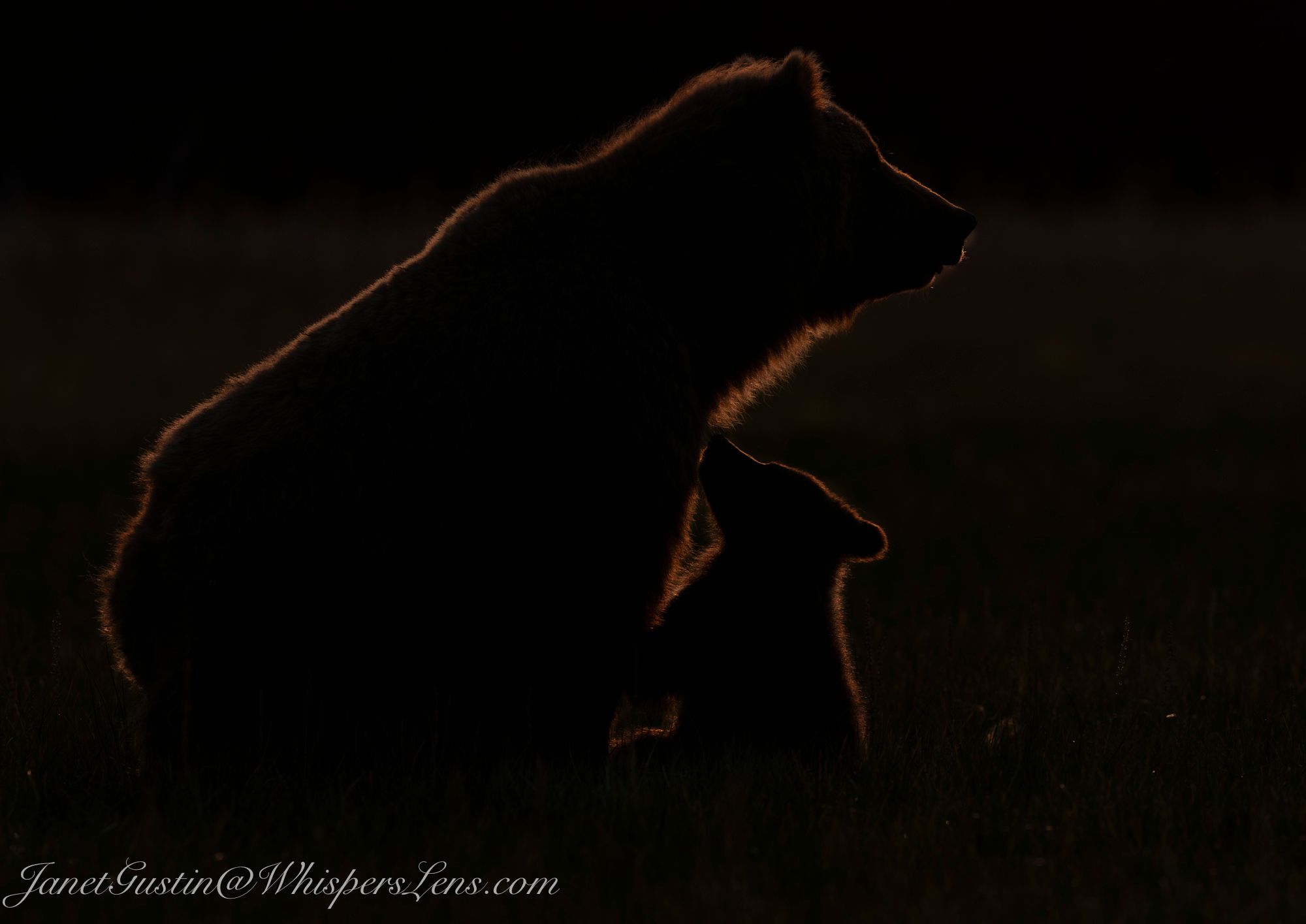
But watching her forced me to ask: What am I still trying to earn rather than receive? What past mistakes am I still allowing to define me instead of letting God redefine me through them? Where am I still living as if redemption is something I have to achieve rather than something that's already been given?
The most uncomfortable truth was this: I wanted the fairy tale version of redemption. I wanted my mistakes erased, not transformed. I wanted my failures to disappear, not become the foundation for deeper wisdom. But Long Nose Bear's story demanded that I embrace the beautiful, messy reality of love that has been refined by loss—not perfected by avoiding it.
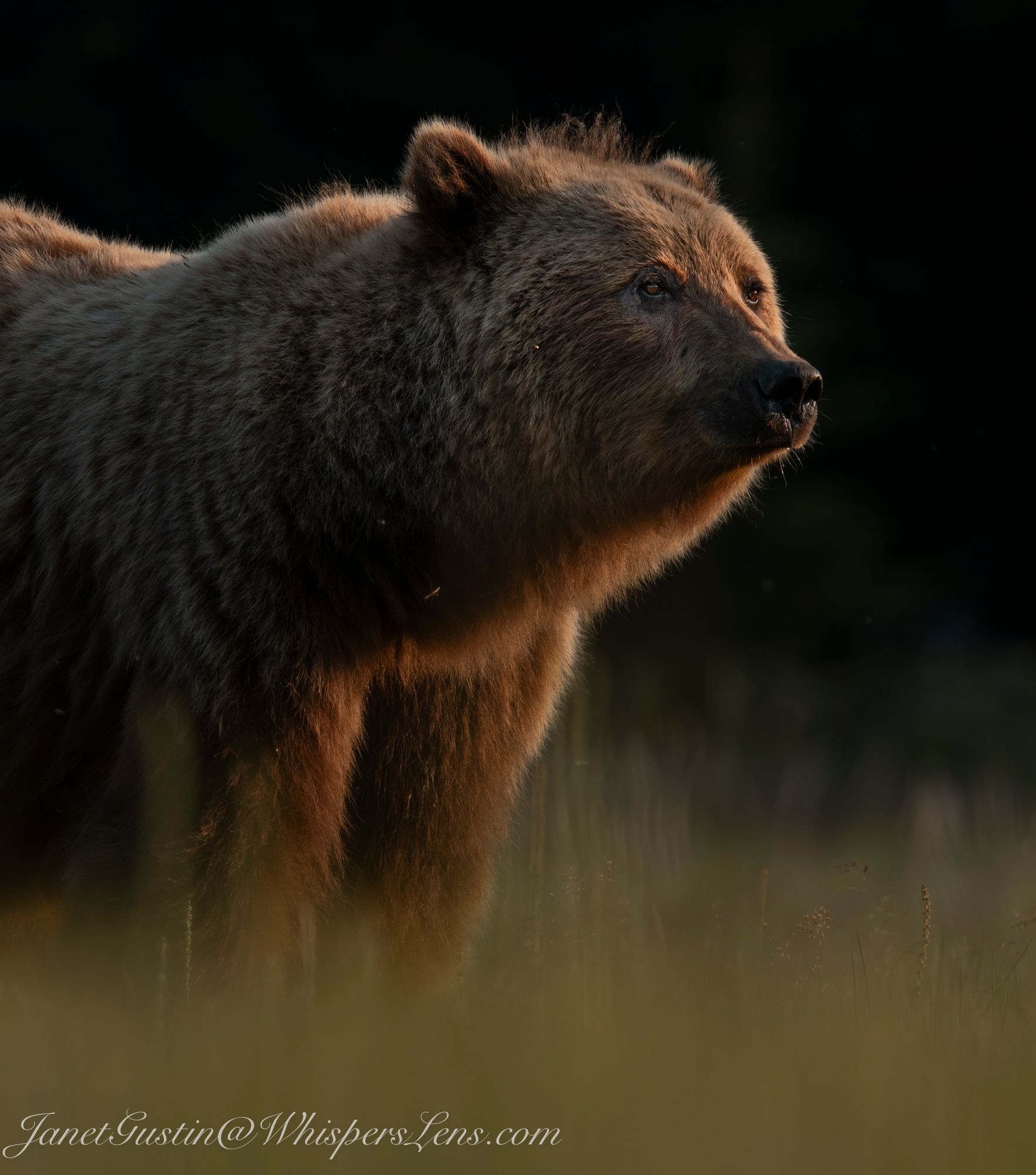
This is how God works in our lives, but are we willing to let Him? He doesn't erase our past mistakes or wave a magic wand to make us perfect. Instead, He redeems our failures by transforming them into the very source of our strength and wisdom. Our scars become our sensitivity to others' pain. Our mistakes become our motivation for diligence. Our losses become the foundation for love that runs deeper than we ever imagined possible.
The question isn't whether God can redeem our stories—it's whether we're willing to let Him use our failures as the foundation for something better than we ever could have built on our own. Paul's words to the Romans have never felt more true:
"And we know that in all things God works for the good of those who love Him, who have been called according to His purpose." (Romans 8:28)
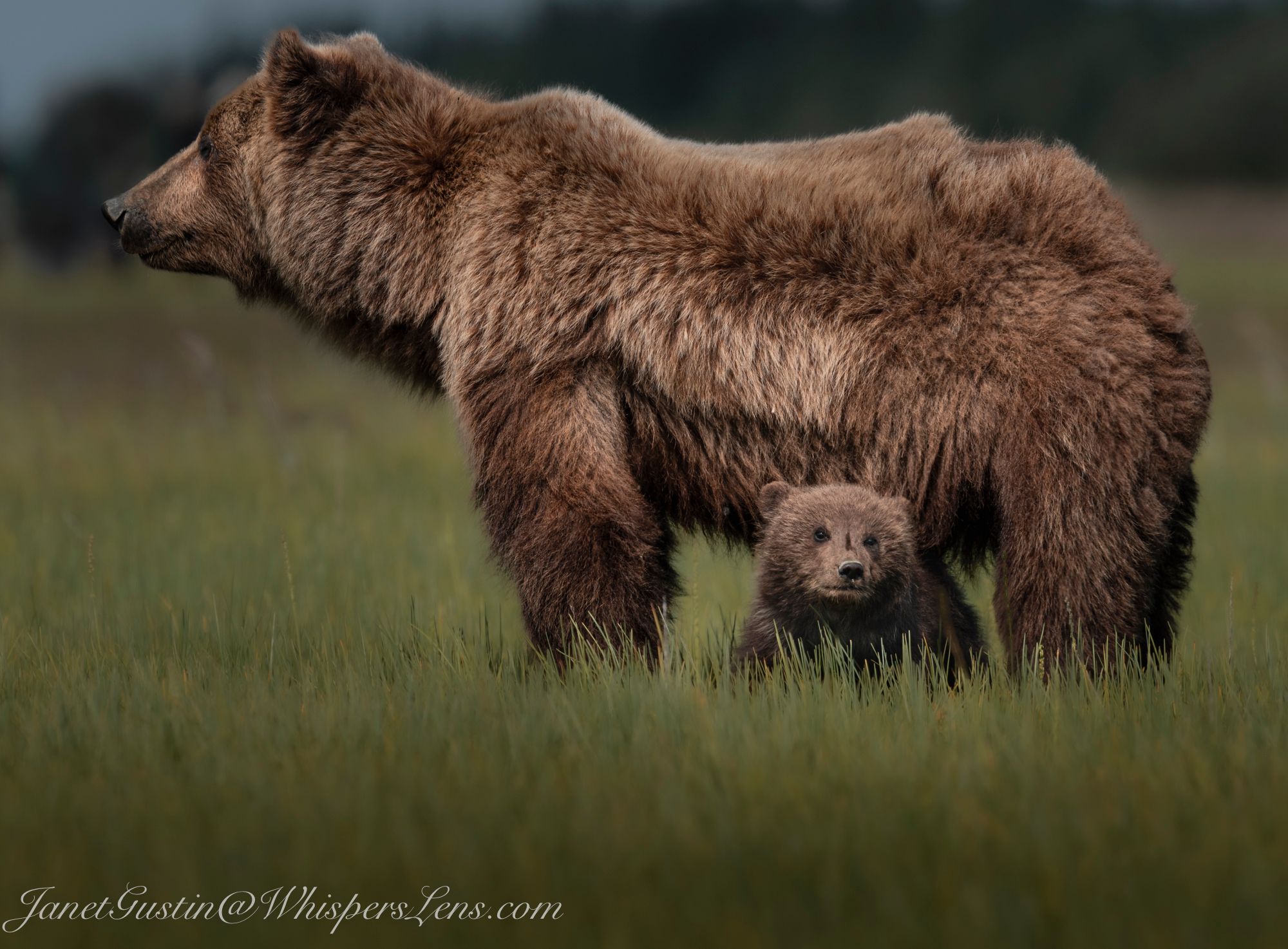
But Long Nose Bear's story demands more than admiration—it demands honesty. As I watched her transformed motherhood, I found myself asking uncomfortable questions that echoed long after I left Alaska.
The questions stung because they were specific. When had I chosen the mudflats of my own cravings over the vulnerable hearts that needed my attention? When had I been so focused on feeding my own needs that I missed the deeper needs of my spouse, my loved ones, my community?
The cubs who played so freely on that Alaskan beach didn't know their mother's history. They only knew her present love—fierce, protective, teaching, and tender. They were the beneficiaries of a mother who had been transformed by loss into someone capable of love deeper than instinct, stronger than fear, more vigilant than mere survival.
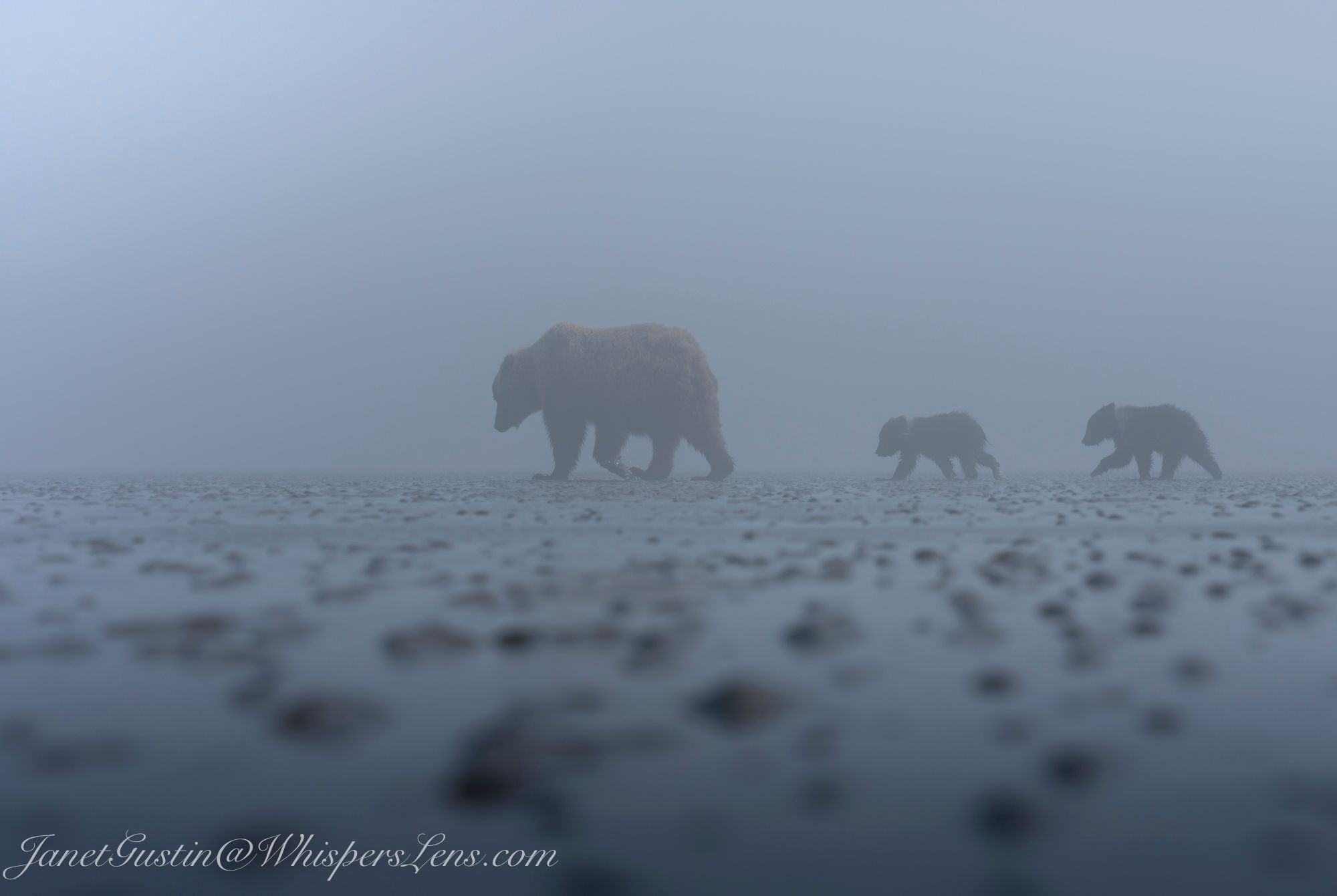
But I couldn't help wondering: What story am I writing for those who come after me? Are they receiving the benefit of my failures transformed into wisdom, or am I still carrying my mistakes as burdens that weigh down everyone around me?
The cubs trusted their mother's transformed love completely. They didn't question why she made them dig for their own clams or why she sent them up trees when danger approached. They simply received her hard-won wisdom as the gift it was.
Who in my life is trying to share their hard-won wisdom with me, and am I receiving it as the gift it is? Or am I resisting the very lessons that could transform my own ability to love and lead? I could almost hear God whispering:
"See, I [God] am doing a new thing! Now it springs up; do you not perceive it? I am making a way in the wilderness and streams in the wasteland." (Isaiah 43:19)
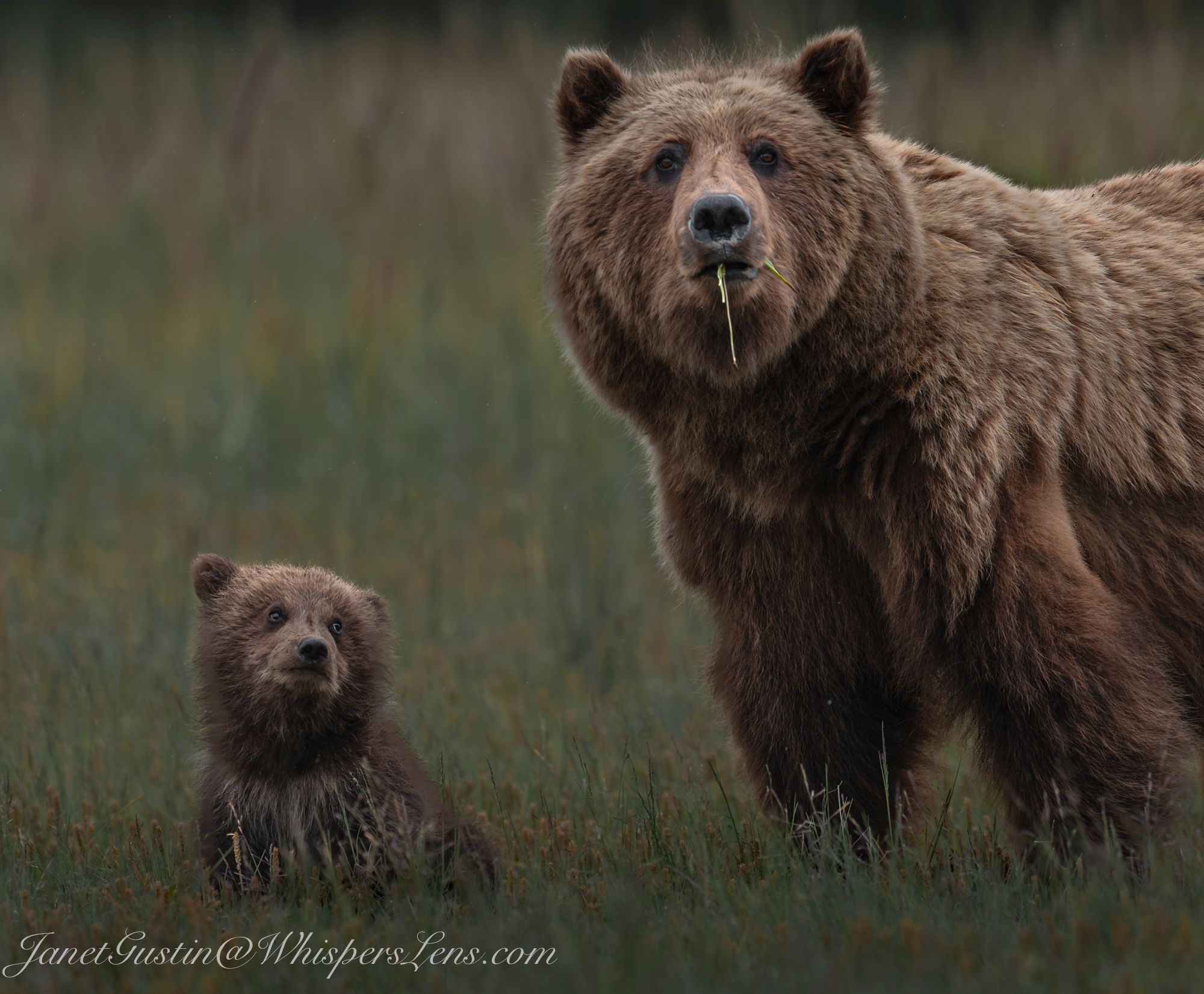
The weight of love isn't a burden—it's the anchor that keeps us grounded when the storms of life threaten to carry us away from what matters most. But anchors only work when we're willing to stay connected to them, when we stop trying to drift away from the very experiences that could make us who we're meant to be.
So here's my challenge to you—and to myself: Stop running from the weight. Stop trying to edit your story to remove the chapters that brought you to your knees. Stop waiting for God to give you a different story and start asking Him to show you how He's already using this one.
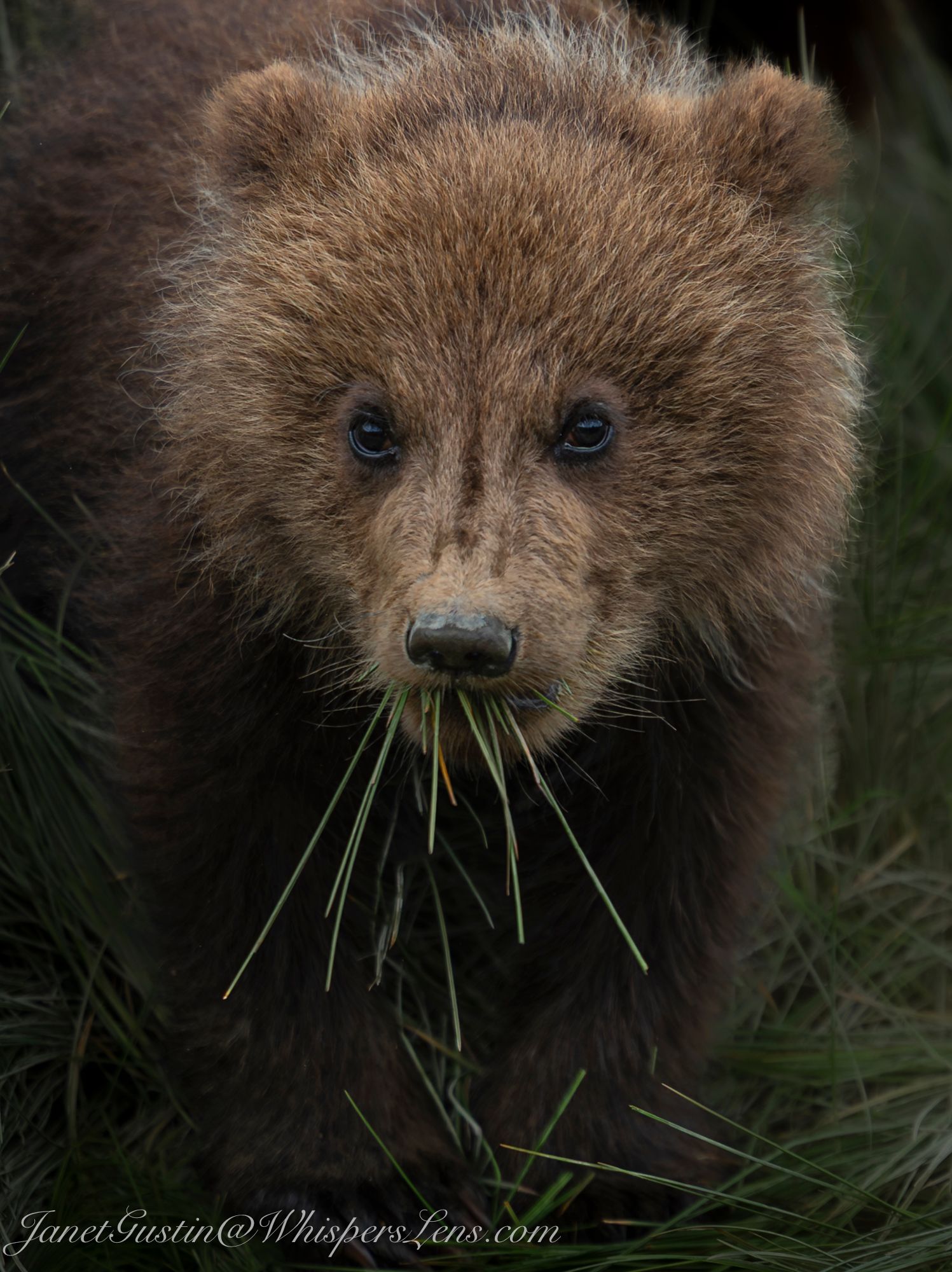
What losses have shaped you? What failures are you still carrying as shame instead of allowing God to transform them into wisdom? What are you afraid to lose again?
Because that's where your truest transformation begins—not in the comfortable places where you've never been tested, but in the tender spaces where you've already been broken and are learning to love with the weight of that breaking. Paul understood this when he wrote with such vulnerability:
"But He [God] said to me, ‘My grace is sufficient for you, for My power is made perfect in weakness.' Therefore I will boast all the more gladly about my weaknesses, so that Christ's power may rest on me." (2 Corinthians 12:9)
